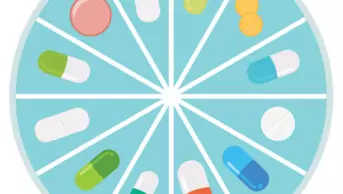Efforts to address medicines waste and improve prescribing quality are gathering momentum across Scotland following the NHS England ‘National overprescribing review report’, published in 20211. Within NHS Greater Glasgow and Clyde (NHSGGC), the patient experience and public involvement (PEPI) teams and the pharmacy prescribing team have worked together to explore how patients view their medicines and the concept of deprescribing.
In May 2025, NHSGGC launched a survey to capture public perspective on deprescribing, building on previous work that engaged patients around medicines supply and waste and also engaged with prescribers regarding clinician confidence in deprescribing.
The May 2025 survey was adapted from the ‘Revised Patients’ Attitudes Towards Deprescribing Tool’ (rPATD), a validated instrument used internationally to gauge principles of deprescribing in more depth with questions focused on understanding2:
- How satisfied people are with their current medicines use;
- Whether people have concerns about their current medicines use;
- How people feel about discussing deprescribing with a healthcare professional;
- Whether people had any existing experience of deprescribing;
- What actions the NHS could take to support people in considering deprescribing where appropriate.
The survey was promoted to 66,000 members of the NHSGGC’s Involving People Network, as well as via the health boards’ website and social media platforms. The Involving People Network is a network of patients, carers, third-sector representatives and volunteers who collaborate with NHSGGC staff to involve people in the design, delivery and transformation of new NHS services. Alternative formats were available on request to help ensure accessibility. Participants were redirected to our equalities monitoring form at the end of the survey. Completing this form was optional but were encouraged to do so in the accompanying text. Survey responses were analysed using a combination of digital and manual analysis methods by staff from the PEPI and pharmacy team.
A total of 1,072 people completed the survey, while 234 completed the equalities monitoring form. The respondent profile was as noted:
- 71% (n=761) of respondents identified as female;
- 71% (n=761) of people who responded were aged 55 years and over, with 31% (n=236) of those being aged 75 years and older;
- 98% (n=1050) of respondents identified as white, and 87% (n=932) identified as white Scottish.
The questions were largely structured to enable answers ranging from strongly agree to strongly disagree, with a fifth option for ‘unsure’. There were also opportunities for respondents to enter open responses as to why they answered this way towards the end of the survey.
Key findings from the survey include:
- Almost 30% of respondents (n=321) felt they were taking too many medicines;
- 78% of respondents (n=836) said they would consider stopping a medicine if their healthcare professional said it was appropriate, indicating positive levels of trust with Healthcare Professionals (i.e. “If my doctor or pharmacist gave me advice on my meds, I’d take it seriously.”);
- 20% of respondents (n=214) said they would like their healthcare professional to reduce one or more medicines (i.e. “I just want to know which meds are truly helping and which ones I could maybe stop.”);
- 33% of respondents (n=354) said one or more medicines might be giving them side effects (i.e. “I discussed side effects and agreement with my medical team to make amendments.”);
- The average level of concern about the idea of reducing or stopping medicines was 5/10, on a scale of 1 = ”not concerned at all” to 10 = ”concerned a lot”. It was suggested that a person-centred discussion would alleviate some of this concern (i.e. “As long as the change would improve my wellbeing, I would be agreeable. I would like to have the opportunity to discuss the changes…”);
- When asked my respondents rated level of concern this way: 86% of respondents (n=925) answered in open responses; and 74 participants expressed trust with their healthcare professional changing or stopping their regular medicines as being important (i.e. “I’ve always had brilliant support from the NHS, and I trust the health care professionals who have kept me going past my sell by date.”);
- Many respondents wanted more involvement in decisions about their treatment and greater clarity about their medicines (i.e. “A face-to-face GP appointment to explain why this action should be taken and what effect this will have on me.”).
Overall, the findings suggest that patients are willing to have conversations about deprescribing, provided the process is collaborative and person centred.
Digital exclusion is recognised as a factor in reaching underrepresented groups and communities. While the survey was available in a range of formats, this was on request and is not in itself necessarily more inclusive. The lack of ethnic and gender diversity among respondents stress the need for more inclusive approaches.
NHSGGC recognises these gaps and plans to co-design future programmes that are in-person engagements with protected characteristics groups, delivered in a collaborative manner, to increase representation, accuracy and diversity of experience.
The next steps of the project are as follows:
- Develop deprescribing educational resources for all prescribers and create a network of prescriber champions to share learning and create peer support;
- Co-design patient educational resources with patients, general public and third-sector representatives;
- Launch a robust communications campaign to normalise deprescribing as part of good practice;
- Integrate deprescribing into prescriber training across the health board;
- Strengthen engagement with underrepresented communities to ensure a true reflection of NHSGGC.
This large-scale survey adds weight to the growing evidence that patients wish for a stronger voice in decisions about their medicines and are receptive to deprescribing when approached in a supportive way.
For NHSGGC, the next challenge is to build on this momentum, ensuring prescribers feel confident to act and that engagement strategies reflect the diversity of the communities they serve.
The full deprescribing report is available here.
Julieanne Lock, pharmacist at NHS Greater Glasgow and Clyde
Anne Thomson, pharmacist at NHS Greater Glasgow and Clyde
Lisa Martin, patient experience and public involvement manager at NHS Greater Glasgow and Clyde
Declaration of interest
No conflicts of interest declared.
Funding statement
Nil funding was obtained for this study
- 1.National overprescribing review report. Department of Health and Social Care. 2021. https://www.gov.uk/government/publications/national-overprescribing-review-report
- 2.Patients’ Attitudes Towards Deprescribing (PATD), revised PATD (older adults and caregivers versions) and the rPATDcog (version for people with cognitive impairment) questionnaires. Australian Deprescribing Network . www.australiandeprescribingnetwork.com.au
You may also be interested in

Psychotropic deprescribing in ethnic minority individuals with a learning disability requires a more nuanced approach

Effective deprescribing: getting the most from medicine
